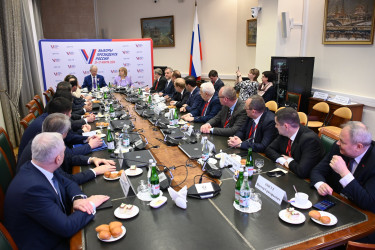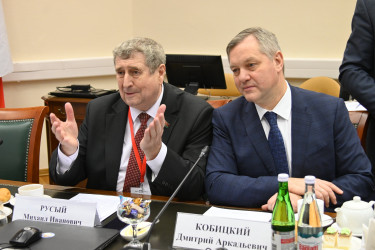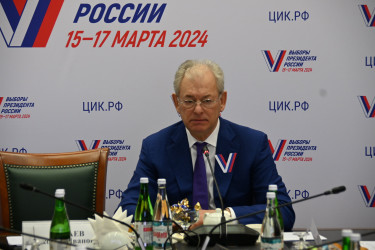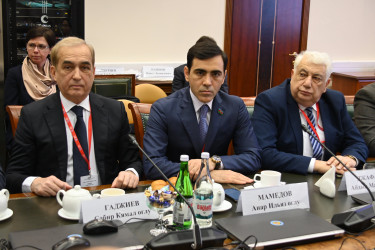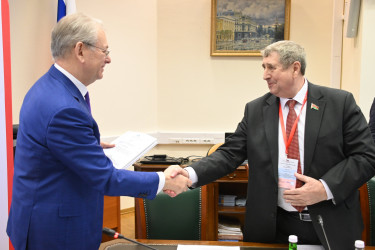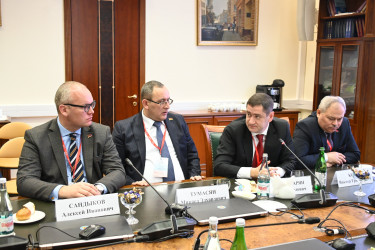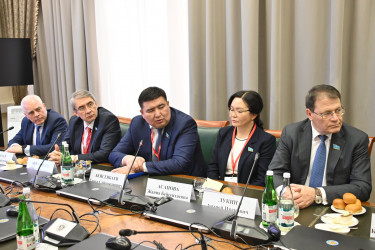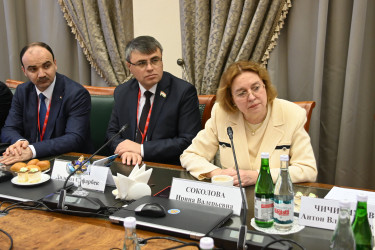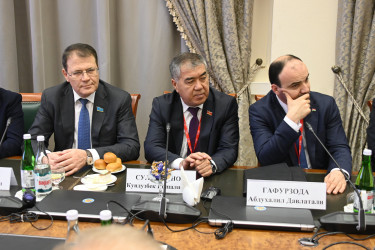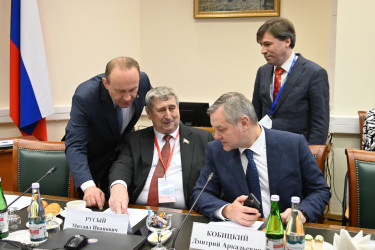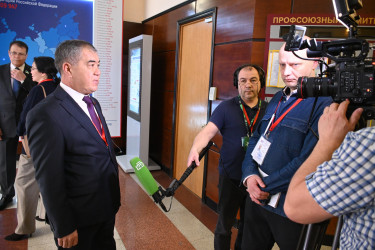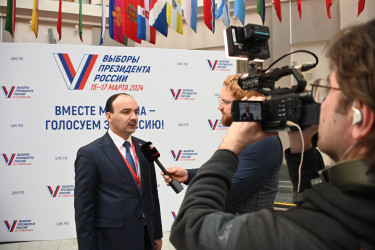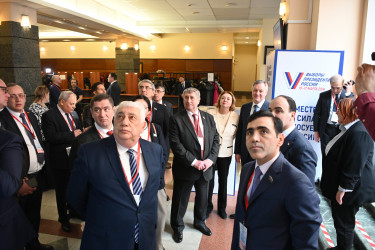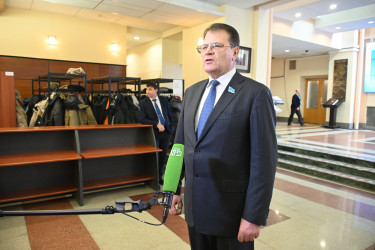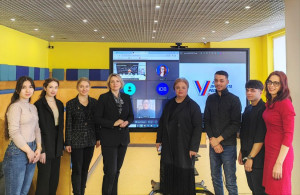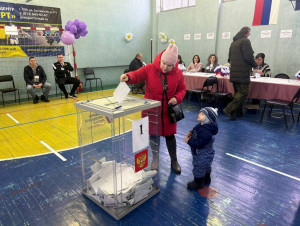IPA CIS Observers Discussed Progress of Presidential Election Campaign with Leaders of Central Election Commission
15 March 2024
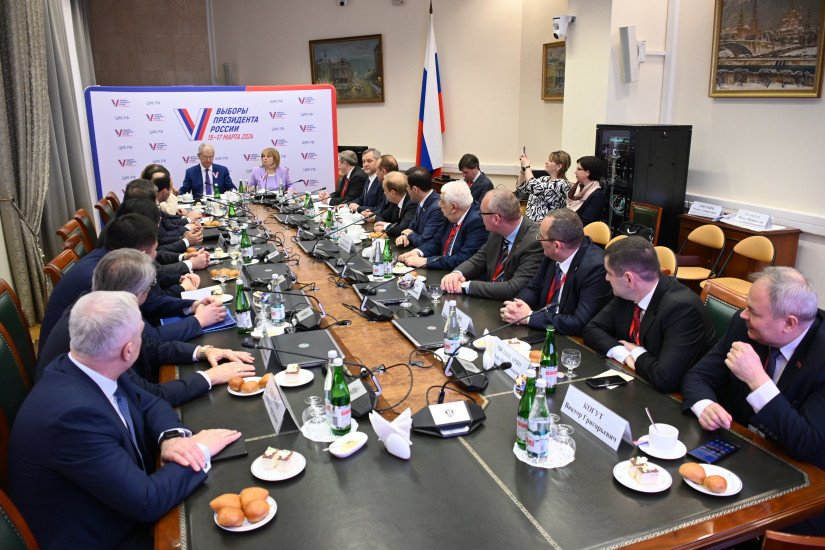
The IPA CIS International Observers Group met with the Chair of the Central Election Commission of the Russian Federation Ella Pamfilova and her Deputy Nikolai Bulaev as part of monitoring the presidential elections.
Particular attention at the meeting was paid to new technologies, the public surveillance system and security issues of the current campaign.
The coordinator of the group, Chair of the Standing Commission of the Council of the Republic of the National Assembly of the Republic of Belarus for Regional Policy and Local Self-Government Mikhail Rusy spoke about the working organization of International Observers Group in Russia and in foreign areas. He noted the representative composition of the group: it included deputies and senators of the IPA CIS member countries who went through several election campaigns themselves.
The coordinator noted that the entire legislative framework regulating elections had been analyzed involving the most competent experts and it fully complies with international standards. According to him, there were no serious violations identified.
According to the Central Election Commission, there were about 5 million applications submitted for remote voting.
Another 3 million voters are estimated to be able to vote electronically in Moscow where an application is not required. There are traditionally many applications for remote electronic voting: 80% of those who submitted applications in Kamchatka has voted; in Chuvashia, where every fourth person signed up for the remote electronic voting, 33% has voted in the first two and a half hours.
Nikolai Bulaev told that some cases of intentional damage to ballot boxes and hacker attacks had been recorded at polling stations.
Answering questions from observers, Nikolai Bulaev spoke about the peculiarities of organizing voting in the DPR, LPR, Zaporozhye and Kherson regions, related to the organization of election commissions, snap voting and ensuring security at polling stations.
Speaking about the video surveillance system, the Central Election Commission noted that 80 thousand cameras were installed at 43 thousand polling stations where 80% of the population were expected to vote.
The commission noted that the country has invested significant funds in ensuring public observation of elections.


